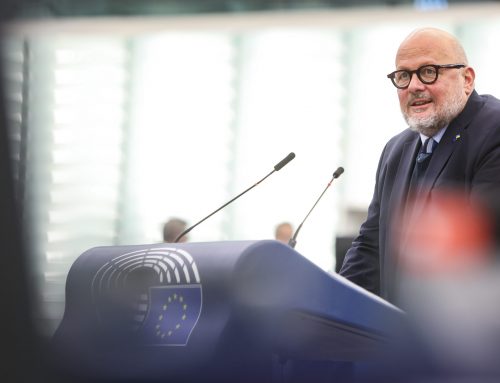
Le 26 mai 2020, lors de la commission EMPLOI dont je suis membre effectif, je me suis livré à un petit jeu de questions réponses avec la commissaire Dalli, en charge de l’égalité en Europe. Mon objectif était de confronter l’Europe à l’urgence sociale sur le terrain avec un focus particulier sur les inégalités hommes-femmes, les discriminations fondées sur le genre, la race ou la religion … ainsi que les discriminations subies par les personnes ayant un handicap.
Voici le résultat :
1.
Q: On Pay Transparency : Wages equality between women and men is already included in the current treaties. However, it appears women earn close to 17 % less than men for same work at the same place. Taking into account this statistics, it appears crucial for the EU to take the floor and come with a new legislative proposal on how to guarantee equal treatment for women and men at work. As you know, Socialists and democrats have fought for a new directive on salary transparency. Don’t you think the commission should include this file in the current work program 2020, especially due to the fact women have been on the first line of the crisis?
A: Striving for gender equality on the labour market to close the gender employment, pay and pension gaps remains a Commission priority. Gender pay transparency is an important necessary step to close the gender pay gap. The Commission is therefore sticking to its commitment to present a legislative initiative on binding measures on pay transparency and strengthening the enforcement of the principle of equal pay: equal pay and, more broadly, gender equality remain a strong priority for the Commission. This legislative initiative is included in the revised Commission Work Programme for 2020.
2.
Q: On Equal treatment: On your hearing before this Committee on October 2nd, you stated that it was your will to unblock the proposed Equal Treatment Directive stalled in the Council for over 12 years. Given that the EPSCO meeting of October 24th did not solve the situation, and taking into account the countless cases of discrimination we have witnessed during the pandemic, for example, against persons with disabilities living in residential institutions or against LGBTI persons, is the Commission ready to prepare new anti-discrimination legislation? And what is exactly your personal opinion on the interest/perspective to come with a new proposal and not to restart from the current text as it has been achieved already since 2008?
A: It remains the Commission’s priority to work on filling the gap in European equality legislation. Since many years, the Commission has been striving for the adoption of its proposal for a horizontal Equal Treatment Directive. A policy debate that took place in the 2019 October EPSCO Council revealed that many Member States still support the proposal but also confirmed that unanimity is not reached. The scope covered by this proposed directive remains valid and the Commission will continue with its efforts to unblock the negotiations in the Council in cooperation with the Council Presidencies and encourages Member States to make progress in the negotiations. The urge to act has become even more pressing in the context of the Covid-19 crisis and the risks it poses to equality.
3.
Q: On disabled persons / disability strategy: Persons with disabilities have been particularly affected by the COVID 19 pandemic. Persons living in institutions have been put at high risk of contagion, persons relying on services at home have seen their assistants unable to come and support them, and many persons with disabilities who were forced to work with low pay and precarious contracts have lost their jobs with little or no compensation. It will take persons with disabilities far longer to recover from this crisis than persons without disabilities. How will this be reflected in the EU’s new disability strategy for the coming decade?
A: The Commission will present a European Disability Strategy in 2021, building on the results of the ongoing evaluation of the current Strategy. In our work, we are guided by the UN Convention on the Rights of Persons with Disabilities and the European Pillar of Social Rights. We will certainly take into account the impact of the COVID-19 pandemic on persons with disabilities in the future strategy.
We remain in close contact with organisations representing persons with disabilities and organisations representing service providers. This is crucial to better appraise the impact of the pandemic. For example, a high-level exchange with NGOs on the impact of COVID-19 on social services took place on 29 April 2020 with the participation of Vice-President Šuica, Commissioner Schmit, Commissioner Kyriakides and myself.




